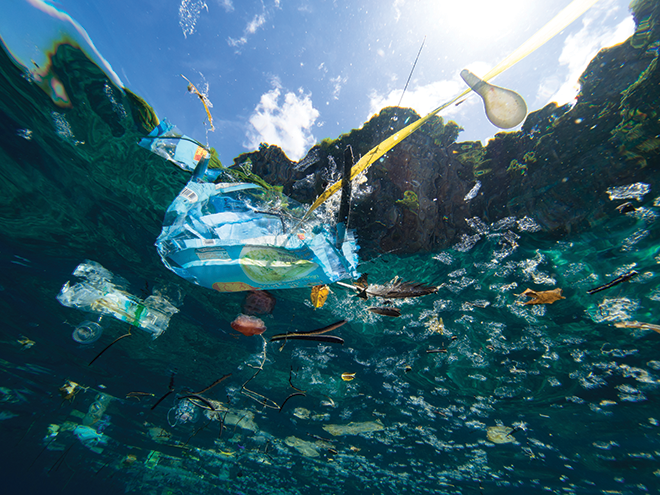By Erin Hitchcock –
It’s not clear when or by what authority, but a single-use plastics ban is on the horizon.

In July, I presented a petition to Williams Lake city council with more than 1,300 signatures, asking them to ban single-use plastics. They all agreed at the Committee of the Whole meeting with plans to begin working on a ban bylaw, as several other municipalities in BC have done. However, doing so may not be as simple as previously thought.
Days after the presentation, the BC Court of Appeal overturned last year’s BC Supreme Court ruling that allowed Victoria to enact a plastic bag ban bylaw. The recent judgement is based on a clause in the Community Charter that says municipal laws that regulate in relation to the protection of the natural environment require the approval of the provincial Minister of Environment. Whether it’s just as simple as receiving provincial permission or whether there could be other ways around the issue will need to be determined.
Victoria is considering taking the matter to the Supreme Court of Canada, but by then, plastic bags and other single-use plastics could be banned in BC or even Canada, while the impact these items have on the environment and communities will have continued to grow.
BC Minister of Environment and Climate Change Strategy, George Heyman, has expressed support for a single-use plastics ban, welcoming the federal government’s announcement earlier this year of a country-wide ban that is supposed to come into effect in 2021.
The BC Government has also given first reading to a bill to ban plastic bags and is now seeking feedback from the public via a survey on a single-use plastic ban, as well as feedback on reducing and recycling more plastics so they don’t end up in the landfill.
“The message from British Columbians is loud and clear—we need to take action to reduce plastic waste, especially single-use items like water bottles and plastic bags that often find their way into our waters, streets, and environment,” Heyman said in a July 25 news release. “We have all seen the striking images of animals and fish being caught up in everyday plastic waste like grocery bags or beer can loops that ensnare these beautiful creatures, and it cannot continue. I look forward to hearing from people about how we can all play a part in reducing plastic pollution and plastics use overall.”
To take the public survey, visit https://cleanbc.gov.bc.ca/plastics, send a formal submission to [email protected]., or email your comments to [email protected]. Please participate by September 18 at 4 pm.
According to a study published in National Geographic magazine, more than eight million tons of plastic is dumped into our oceans every year—that’s about a dump truck a minute. While many plastics can be recycled, globally 91 percent of plastics aren’t being recycled.
Plastic pollution has become so out of control that, according to the Proceedings of the National Academy of Sciences of the United States of America, 90 percent of seabirds have plastics in their stomachs.
Plastics also pollute our local environment. One only has to walk down the street to see plastic bags, bottles, straws, takeout cups, and Styrofoam bits, which can harm local wildlife, clog storm drains, and eventually reach the Fraser River and ocean.
I would like to see a swift ban on plastic bags, Styrofoam, and straws, at a minimum or as a first step. Compostable/biodegradable plastics are a terrible solution, as most can’t actually be composted in someone’s backyard and they aren’t accepted in our recycling stream.
The best alternatives are reusables. A few ideas on how to reduce plastic waste:
Be mindful what you are buying—remember everything you buy has an environmental impact, from its production to its transportation and to its disposal.
Carry a travel kit of reusable bags, cups, water bottles, straws (such as glass, metal, or bamboo), containers for lunch leftovers, and cutlery. Prepare the night before by having your items by the door or have a reminder decal on your vehicle.
Ditch garbage bags all together. If you must use a garbage bag, reuse packaging currently difficult to escape from, such as bread bags, toilet paper bags, etc. or line your indoor waste bins with newspaper.
Reuse packaging, such as bread bags, or use mesh or cloth bags for your produce and bulk items.
Eat more whole foods and less processed foods that come in packaging.
Instead of wrapping food in plastic wrap, use containers or wrap them up with reusable beeswax-coated fabric.
Erin Hitchcock is a stay-at-home mom with a journalism diploma and more than 15 years of related experience. She is part of the Cariboo-Chilcotin Pachamama Alliance and is passionate about creating a better future for the Earth. She can be contacted at [email protected].
